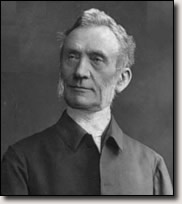Little Emerald is a happy baby, smiling even when she’s exhausted or hungry, sometimes when we’re not even looking at her. And if she’s crying, the slightest encouragement brings a smile while she’s still in tears. She even smiles at her rattles and toys, though she saves her best grins for one toy in particular: Miss Octopus.
This aqua-colored stuffed animal was designed to hang from a baby’s play gym, but Emerald liked it so much we hung it from a kitchen cabinet instead. Not a day goes by that she doesn’t have several communication sessions with Miss Octopus, gazing up at her from a blanket on the counter.
I don’t think Emerald loves Miss Octopus with the same adoration she feels for Birgitta, but there’s definitely a strong attraction. When she gets a glimpse of her blue friend she gets instantly happy, no matter what her mood.
Emerald’s world is limited compared to the rest of us. She’s never been far from home and is happiest when keeping to a calm, slightly dull routine. Because of that, it doesn’t take much to get her excited.
That’s not true for the rest of us. We’ve been around the block a few times, so to speak, and it takes quite a bit more than the wide smile of a stuffed octopus to get us going. That’s especially true of our spiritual lives. We might find that our Bible reading and prayer times don’t enthuse us anymore, though we’re not sure of the reason.
Maybe it’s because we haven’t experienced God doing anything for us lately, so we’ve become indifferent toward him. And the reason behind that might be we’ve forgotten what he looks like, so have missed what he’s done for us.
Scripture tells us how to “see” him. We’re to watch for unusual circumstances that first appear to be merely coincidental. Do they have something to do with what we’ve prayed about? If so, could it be God’s movement we’re seeing?
We’ve also learned that when life starts falling apart, we’re supposed to watch for him. In the midst of everything going bad, he’s usually right around the corner. Another place we might see him is just after we’ve received shocking news of any kind. When we cry out in anguish, he responds from nearby, showing himself to be very close.
There are other ways we can see God too, such as in the natural world, but none of the above “sightings” will happen without one prerequisite: we have to look for him. And just like little Emerald looks for Miss Octopus when she’s put on the kitchen counter, we ought to strain to see our Lord. Then, when we do, it’ll be even more exciting than Emerald getting a glimpse of her much-loved octo-friend.
“You will seek me and find me when you seek me with all your heart.” (Jeremiah 29:13)





